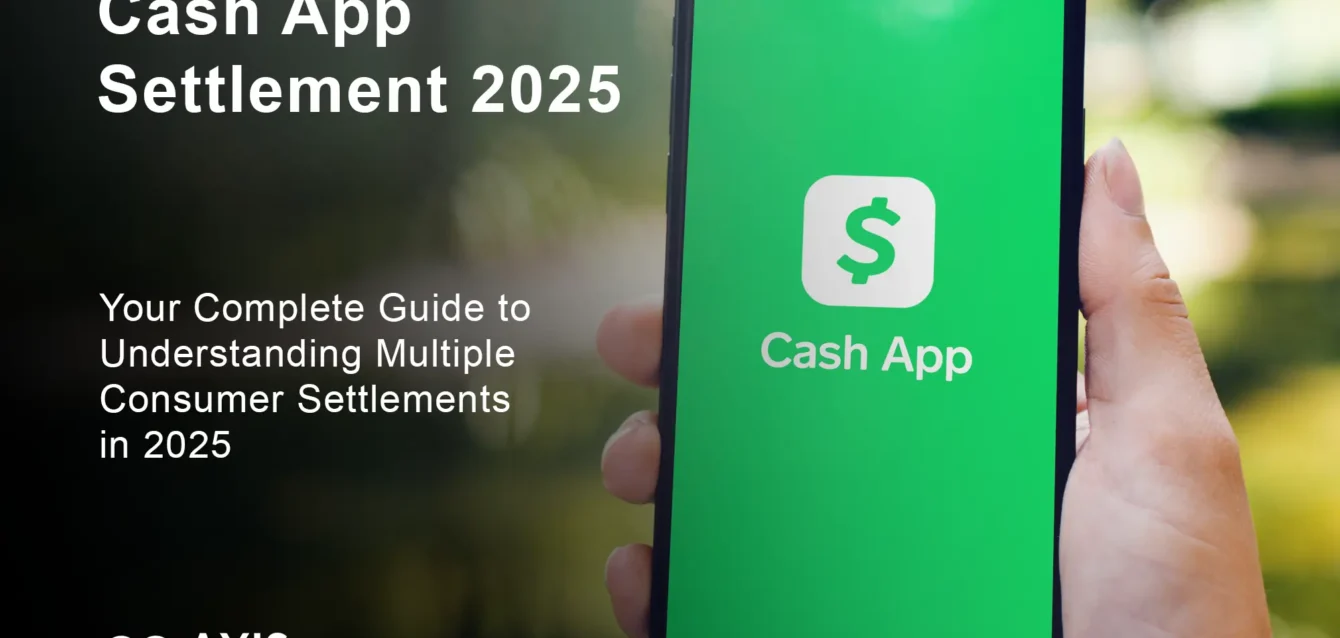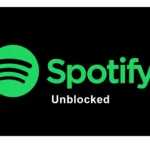Cash App Settlement 2025
Avis de non-responsabilité : This article provides educational information only about public legal settlements. Settlement outcomes are not guaranteed, and eligibility requirements are subject to change. Always consult official settlement websites and legal professionals for personalized advice. The information presented here is for informational purposes and should not be considered legal or financial advice.
If you’ve used Cash App in recent years, you may want to understand the various legal settlements involving the platform. Multiple settlements totaling over $200 million are addressing different issues that affected millions of users, with some individuals potentially eligible for compensation under specific circumstances.
What many people don’t realize is that there are several different Cash App-related settlements proceeding simultaneously, each addressing distinct legal issues with separate eligibility requirements and potential compensation amounts. Block Inc., Cash App’s parent company, is addressing these legal matters while also facing regulatory action from federal authorities.
Understanding these settlements could be important if you believe you may have been affected by the issues they address.
Table des matières
- Breaking Down the Multiple Cash App Settlements
- The $15 Million Security Breach Settlement
- The $12.5 Million Spam Text Settlement
- CFPB’s $175 Million Penalty and Consumer Refunds
- Who Qualifies for Each Settlement Type
- How Much Money You Could Actually Receive
- Step-by-Step Claim Process for Each Settlement
- Critical Deadlines You Cannot Miss
- What Went Wrong: The Full Timeline of Cash App Problems
- Documentation You Need to Maximize Your Payout
- Common Mistakes That Could Disqualify Your Claim
- When to Expect Your Payment
- Tax Implications of Settlement Payments
- Red Flags: Spotting Settlement Scams
Understanding the Multiple Cash App Settlements
Most news reports focus on individual Cash App settlements, but understanding the complete picture requires examining multiple concurrent legal matters. Block Inc. is addressing several different legal issues simultaneously, creating various potential paths for affected users to seek compensation.
The Three Primary Settlement Categories
Security Breach Class Action ($15 Million): Addresses users who may have been affected by data security incidents between 2018-2024, with potential compensation up to $2,500 per eligible person who meets specific criteria.
Spam Text Class Action ($12.5 Million): Specifically addresses Washington state residents who received certain promotional text messages, with estimated potential compensation between $88-$147 based on participation rates.
CFPB Regulatory Settlement ($175 Million): Federal regulatory action that includes $120 million designated for potential consumer refunds related to customer service and fraud protection issues.
Important Note: Meeting basic criteria doesn’t guarantee compensation. Actual payments depend on court approval, claim validation, participation rates, and available funds after administrative costs.
The $15 Million Security Breach Settlement
This settlement stems from two major security incidents that exposed millions of users to fraud and identity theft.
What Happened
In December 2021, a former Cash App Investing employee accessed customer data without authorization, affecting approximately 8.2 million users. The breach exposed names, brokerage account numbers, stock trading activity, and portfolio values.
A second incident occurred in 2023 when unauthorized users gained access to Cash App accounts through recycled phone numbers. This attack method exploited a vulnerability in how Cash App handled account recovery for old phone numbers that had been reassigned to new users.
Eligible Damages and Compensation
Users can claim compensation for several types of losses:
Out-of-Pocket Expenses (Up to $2,500):
- Credit monitoring service fees
- Identity theft protection costs
- Accountant fees for resolving financial issues
- Legal fees related to fraud
- Bank fees from unauthorized transactions
- Time off work to resolve account issues
Time Compensation ($75 Maximum):
- Up to 3 hours at $25 per hour for time spent resolving breach-related issues
- Documentation required showing time spent on breach-related activities
Direct Transaction Losses:
- Unauthorized withdrawals or transfers
- Fraudulent purchases made with compromised account information
- Overdraft fees resulting from unauthorized transactions
Eligibility Requirements
To potentially qualify for this settlement, individuals must meet these criteria:
- Had an active Cash App or Cash App Investing account between August 23, 2018, and August 20, 2024
- Experienced unauthorized account access, fraudulent transactions, or data breach-related losses that can be documented
- Can provide supporting documentation connecting their losses to the security incidents
- Filed their claim before the November 18, 2024 deadline (note: this deadline has passed for new claims)
Important : Meeting these basic criteria doesn’t guarantee compensation. Claims require validation and documented losses.
The $12.5 Million Spam Text Settlement
This settlement addresses a completely different issue: unsolicited text messages sent through Cash App’s “Invite Friends” referral program.
The Legal Violation
Between November 2019 and 2024, Cash App sent promotional text messages to Washington state residents without proper consent. These messages violated two state laws:
- Washington Consumer Electronic Mail Act
- Washington Consumer Protection Act
Plaintiff Kimberly Bottoms filed the lawsuit after receiving unwanted referral texts, leading to the class action that could affect nearly 2 million phone numbers with Washington area codes.
Who’s Eligible
You qualify for this settlement if you:
- Lived in Washington state when you received the text message
- Have a phone number with a Washington area code (206, 253, 360, 425, 509, 564)
- Received Cash App referral texts between November 14, 2019, and the final cutoff date (to be determined)
Expected Payout
The settlement provides pro rata payments, meaning the amount depends on how many people file valid claims:
- If all 2 million eligible users claim: $88-$147 per person
- If fewer people claim: Higher individual payouts
- Maximum potential: $500 per violation under Washington law
CFPB’s $175 Million Penalty and Consumer Refunds
The Consumer Financial Protection Bureau imposed the largest penalty in Cash App’s history after finding systematic violations of federal consumer protection laws.
What the CFPB Investigation Found
The federal investigation revealed multiple serious problems:
Inadequate Fraud Protection:
- Failed to investigate unauthorized transactions properly
- Left customers without recourse when fraud occurred
- Directed customers to contact their banks instead of resolving issues internally
Customer Service Failures:
- No live customer support available
- Automated responses that didn’t resolve actual problems
- Accounts locked for extended periods without provisional credits
Legal Violations:
- Violated the Electronic Fund Transfer Act (EFTA)
- Misled customers about their rights
- Failed to provide required dispute resolution processes
The Financial Breakdown
The $175 million penalty is divided into two parts:
- $55 million fine paid to the CFPB’s victim relief fund
- $120 million in direct consumer refunds for affected users
Automatic Qualification
Unlike class action settlements that require filing claims, the CFPB order requires Block Inc. to automatically identify affected users and issue refunds. You don’t need to file a separate claim for this relief.
Who Gets CFPB Refunds:
- Users whose unauthorized transactions weren’t properly investigated
- Customers who experienced fraud without receiving entitled refunds
- People whose accounts were locked without provisional credits
- Users who faced systematic customer service failures
Who Qualifies for Each Settlement Type
Understanding which settlements you’re eligible for is crucial because the requirements and processes differ significantly.
Security Breach Settlement Eligibility
Exigences principales :
- Active Cash App account between August 2018 – August 2024
- Documented losses from security incidents
- Filed claim before November 18, 2024 deadline
Qualifying Losses:
- Unauthorized account access
- Fraudulent transactions
- Identity theft expenses
- Time spent resolving breach issues
Documentation Needed:
- Account statements showing unauthorized transactions
- Receipts for identity protection services
- Communication records with Cash App support
- Police reports (if filed)
Spam Text Settlement Eligibility
Geographic Requirement:
- Washington state residency during message receipt
- Phone number with Washington area code
Time Period:
- Received messages between November 14, 2019 – cutoff date
- No documentation of financial harm required
Proof Requirements:
- Evidence of receiving promotional texts
- Verification of Washington residency during relevant period
CFPB Settlement Eligibility
Automatic Identification:
- Block Inc. must identify eligible users
- No claim filing required
- Based on internal records of customer service failures
Qualifying Issues:
- Unresolved fraud disputes
- Account lockouts without credits
- Customer service failures
- Unauthorized transaction investigations
Understanding Potential Settlement Amounts
The potential compensation varies significantly depending on which settlement an individual might qualify for and how they can document their experiences. Important : These amounts are estimates and not guaranteed payments.
Security Breach Settlement Potential Compensation
Maximum Individual Compensation: Up to $2,500
Realistic Expectations Based on Historical Settlements:
- Extensive Documentation: $500-$2,500 for users with comprehensive records of losses
- Moderate Documentation: $100-$500 for documented basic fraud-related expenses
- Minimal Documentation: $25-$100 for qualifying time claims only
Factors That May Affect Compensation:
- Quality and completeness of supporting documentation
- Severity and scope of documented financial losses
- Time spent resolving qualifying issues
- Total number of validated claims submitted
Spam Text Settlement Potential Compensation
Estimated Range: $88-$147 per eligible person
Compensation Calculation: The $12.5 million settlement fund would be distributed among all validated claimants after deducting administrative costs, attorney fees, and court-approved expenses.
Important Considerations: This is a pro rata settlement, meaning fewer valid claims could result in higher individual compensation, while more claims would reduce individual amounts.
CFPB Refund Potential Amounts
Estimated Range: $50-$1,000+ per affected user (based on similar regulatory actions)
Refund Calculation May Consider:
- Documented customer service failures
- Financial impact caused by alleged violations
- Duration of unresolved issues
- Pattern of systematic problems
Remarque : The CFPB hasn’t disclosed specific compensation amounts, and actual refunds depend on individual circumstances and regulatory determinations.
Step-by-Step Claim Process for Each Settlement
Each settlement has different procedures and requirements. Here’s exactly how to navigate each one.
Security Breach Settlement (Deadline Passed)
Remarque : The November 18, 2024 deadline has passed, but you should check if you received automatic notification or if your claim was processed.
If You Missed the Deadline:
- Check your email for settlement administrator communications
- Review bank statements for unexpected payments
- Contact the settlement administrator at the official phone number
- Verify if your losses qualify for other settlements still open
Spam Text Settlement (Active)
Step 1: Verify Eligibility
- Confirm Washington state residency during relevant period
- Locate saved text messages from Cash App referral program
- Verify your phone number has a Washington area code
Step 2: Await Official Notification
- Block Inc. will send notifications via email and mail
- Settlement website will go live once court approves the agreement
- Online publication notices will reach unidentified class members
Step 3: File Your Claim
- Complete the online claim form when available
- Provide Washington residency verification
- Submit before the official deadline (not yet announced)
CFPB Refunds (Automatic Process)
No Action Required from Users
What Block Inc. Must Do:
- Review all customer service interactions from relevant period
- Identify users who experienced qualifying violations
- Calculate appropriate refund amounts
- Issue payments automatically
What You Should Do:
- Monitor your email for refund notifications
- Check your Cash App account for credit notifications
- Review bank statements for direct deposits from Block Inc.
- Update your contact information with Cash App
Critical Deadlines You Cannot Miss
Missing deadlines in class action settlements means forfeiting your rights to compensation permanently.
Completed Deadlines
Security Breach Settlement:
- Claim Deadline: November 18, 2024 at 10:59:59 PM PT ❌ PASSED
- Opt-Out Deadline: November 1, 2024 ❌ PASSED
- Final Approval Hearing: December 16, 2024 (may be rescheduled)
Upcoming Deadlines
Spam Text Settlement:
- Court Approval: Pending (required before claims open)
- Claim Period: Not yet announced
- Final Approval: To be determined
CFPB Refunds:
- No Customer Deadlines: Automatic process
- Company Compliance: Ongoing through 2025
How to Stay Updated
Official Sources:
- Settlement administrator websites
- Court docket systems
- Cash App official communications
- CFPB press releases
Warning Signs of Missed Deadlines:
- Settlement websites going offline
- Final approval hearings completed
- Distribution of payments beginning
What Went Wrong: The Full Timeline of Cash App Problems
Understanding how these problems developed helps explain why the settlements are so significant.
2018-2019: Rapid Growth Phase
Cash App experienced explosive user growth, reaching millions of active users. During this expansion, the company prioritized features and user acquisition over security infrastructure.
Early Warning Signs:
- Customer complaints about unauthorized transactions
- Reports of account takeovers
- Inadequate customer service responses
2020-2021: Security Incidents Begin
March 2020: First reports of systematic customer service failures
- Users unable to reach live support
- Automated responses failing to resolve fraud cases
- Accounts locked without explanation
December 2021: Major data breach discovered
- Former employee accessed 8.2 million user records
- Personal information and financial data exposed
- Company delayed public notification
2022-2023: Legal Challenges Mount
2022: Class action lawsuits filed over data breach
- Plaintiffs alleged negligence in data protection
- Claims of inadequate response to security incidents
2023: Second security incident
- Unauthorized access through recycled phone numbers
- Additional user accounts compromised
- Pattern of security failures established
2024-2025: Regulatory Response
January 2024: CFPB launches investigation
- Federal examination of customer service practices
- Review of fraud dispute procedures
- Analysis of EFTA compliance
August 2024: Security breach settlement reached
- $15 million agreement for affected users
- Admission of security failures
2025: Multiple settlements active
- Spam text settlement approved
- CFPB penalty imposed
- Ongoing regulatory oversight
Documentation You Need to Maximize Your Payout
The difference between receiving a small payment and maximizing your settlement depends largely on documentation quality.
Security Breach Settlement Documentation
Tier 1: Essential Documents
- Cash App account statements showing unauthorized transactions
- Bank statements with unexplained charges
- Email communications with Cash App support
- Screenshots of account lockouts or error messages
Tier 2: Supporting Evidence
- Credit monitoring service receipts
- Identity theft protection invoices
- Police reports filed for fraud
- Credit report showing suspicious activity
Tier 3: Comprehensive Records
- Time logs for resolving account issues
- Travel expenses for bank visits
- Accountant fees for fraud resolution
- Legal consultation costs
Spam Text Settlement Documentation
Required Evidence:
- Screenshots of Cash App referral text messages
- Phone bills showing Washington area code
- Proof of Washington residency during relevant period
- Records of unwanted communication
Supporting Materials:
- Wireless carrier records
- Address verification documents
- Social media posts showing message receipt
CFPB Refund Documentation
No Customer Documentation Required
Internal Records Block Must Review:
- Customer service interaction logs
- Fraud dispute case files
- Account lockout records
- Response time data
Common Mistakes That Could Disqualify Your Claim
Even eligible users can lose their settlements by making preventable errors.
Security Breach Settlement Mistakes
Documentation Errors:
- Submitting illegible receipts or statements
- Claiming expenses unrelated to the data breach
- Providing contradictory information across forms
Deadline Mistakes:
- Missing the November 18, 2024 filing deadline
- Submitting incomplete claims at the last minute
- Failing to follow up on notification requirements
Eligibility Mistakes:
- Claiming damages outside the eligible time period
- Exaggerating losses without supporting evidence
- Filing multiple claims for the same account
Spam Text Settlement Mistakes
Geographic Errors:
- Claiming Washington residency without proof
- Using non-Washington phone numbers
- Providing incorrect address information
Evidence Problems:
- Deleting text message evidence
- Claiming messages received outside eligible period
- Failing to prove actual message receipt
General Settlement Mistakes
Communication Failures:
- Not updating contact information
- Ignoring settlement administrator requests
- Missing follow-up requirements
Legal Errors:
- Opting out accidentally
- Filing claims for ineligible relatives
- Misunderstanding settlement terms
When to Expect Your Payment
Settlement payment timing varies significantly based on the type of settlement and legal procedures required.
Security Breach Settlement Timeline
Current Status: Claims deadline passed, final approval pending
Expected Timeline:
- Final Approval: December 2024 – January 2025
- Payment Processing: 3-6 months after approval
- Check Distribution: Mid to late 2025
Factors Affecting Timing:
- Court approval process
- Appeals period
- Payment method verification
- Settlement administration time
Spam Text Settlement Timeline
Current Status: Preliminary approval stage
Projected Timeline:
- Final Approval: Q2 2025
- Claims Period: 60-90 days after approval
- Payment Distribution: Late 2025 – Early 2026
Variables:
- Court scheduling
- Claims volume
- Administrative processing time
CFPB Refund Timeline
Current Status: Active implementation
Expected Distribution:
- Automatic Identification: Throughout 2025
- Refund Processing: Rolling basis as users identified
- Payment Methods: Various (check, direct deposit, Cash App credit)
Ongoing Process: Unlike class action settlements, CFPB refunds are processed continuously as Block identifies eligible users and calculates appropriate amounts.
Tax Implications of Settlement Payments
Settlement payments can have significant tax consequences that many recipients don’t anticipate.
General Tax Rules for Settlements
Compensatory Damages: Generally not taxable if they reimburse actual financial losses
Punitive Damages: Usually taxable as income
Interest on Delayed Payments: Taxable as income
Security Breach Settlement Taxes
Non-Taxable Components:
- Reimbursement for actual financial losses
- Out-of-pocket expenses for fraud resolution
- Direct compensation for stolen funds
Potentially Taxable Components:
- Time compensation payments ($25/hour for 3 hours)
- Payments exceeding actual documented losses
- Interest on delayed settlement payments
Spam Text Settlement Taxes
Likely Tax Treatment:
- May be considered punitive damages (taxable)
- Statutory damages under consumer protection laws
- Consult tax professional for specific guidance
CFPB Refund Taxes
Expected Treatment:
- Refunds of fees: Generally not taxable
- Compensation for losses: Typically not taxable
- Penalty-based payments: May be taxable
Documentation for Taxes:
- Keep all settlement correspondence
- Maintain records of original losses
- Consult tax professionals for complex situations
Red Flags: Spotting Settlement Scams
High-profile settlements attract scammers who target potential recipients with fraudulent schemes.
Common Settlement Scams
Fake Settlement Websites:
- URLs that closely mimic official sites
- Requests for Social Security numbers or bank information
- Promises of immediate payment for upfront fees
Phishing Communications:
- Emails claiming urgent claim filing required
- Phone calls requesting sensitive information
- Text messages with suspicious links
Social Media Fraud:
- Posts claiming insider knowledge of settlement details
- Offers to help file claims for a fee
- Fake testimonials about settlement payments
How to Verify Legitimate Settlements
Official Sources Only:
- Court-approved settlement websites
- Direct communications from settlement administrators
- Official Cash App/Block Inc. announcements
- CFPB press releases and official notices
Warning Signs of Scams:
- Requests for upfront payment
- Pressure to act immediately
- Promises of guaranteed amounts
- Requests for passwords or PINs
Verification Steps:
- Cross-reference information with official sources
- Contact settlement administrators directly using official phone numbers
- Check court records for case details
- Verify website SSL certificates and domain registration
Questions fréquemment posées
Can I claim money from multiple Cash App settlements?
Yes, if you meet the eligibility requirements for different settlements, you can potentially receive money from multiple sources. The security breach settlement, spam text settlement, and CFPB refunds address different issues and have separate qualification criteria.
What if I closed my Cash App account years ago?
You may still be eligible for settlements based on when you had an active account. The security breach settlement covers accounts active between August 2018 and August 2024, regardless of current status. Keep records of your old account information.
How do I know if my claim was successful?
Settlement administrators typically send confirmation emails when claims are received and processed. You should also receive notification about final approval and payment distribution. Check your email regularly and update your contact information.
Can I appeal if my claim is denied?
Most settlement agreements have limited appeal processes. However, you can usually contact the settlement administrator to clarify documentation requirements or correct errors in your submission.
What happens if I received multiple notifications about the same settlement?
This often occurs when you have multiple Cash App accounts or changed contact information. You should only file one claim per settlement, even if you received multiple notifications. Using multiple claims for the same issue could disqualify you entirely.
Are settlement payments guaranteed?
Settlement payments are only guaranteed after final court approval and successful completion of the claims process. Courts can reject settlements, and companies can appeal decisions, potentially delaying or changing payment amounts.
How can I track the status of pending settlements?
Monitor official settlement websites, court dockets (available through PACER for federal cases), and Cash App’s official communications. Settlement administrators often provide case updates and timeline information.
What if I missed the security breach settlement deadline?
The November 18, 2024 deadline has passed for new claims, but check if you received automatic processing or if technical issues prevented your submission. Contact the settlement administrator to explore any remaining options.
How long do I have to cash settlement checks?
Settlement checks typically have expiration dates ranging from 90 days to 6 months. Check your payment for specific terms and cash it promptly to avoid complications.
Can someone else file a claim on my behalf?
Generally, only account holders or their legal representatives can file claims. Parents can file for minor children, and legal guardians can file for incapacitated individuals, but proper documentation is required.
Important Information: Your Settlement Awareness Checklist
Understanding these Cash App settlements could be important if you believe you may have been affected by the issues they address. Here’s your informational checklist:
Immediate Information-Gathering Actions:
- Review your eligibility for each settlement type using the criteria outlined above
- Locate any documentation related to potential qualifying experiences
- Verify your contact information with Cash App to receive official notifications
- Monitor official settlement websites for the latest updates and process information
For Washington Residents:
- Review any Cash App referral text messages you may have received
- Prepare documentation of Washington residency during relevant time periods
- Watch for official notifications about the spam text settlement process
For All Users:
- Review your Cash App account history for any unauthorized transactions
- Check email for any CFPB refund notifications
- Maintain detailed records of any ongoing Cash App-related issues
Disclaimer: The existence of these settlements doesn’t guarantee compensation for any individual. Settlement processes are complex legal matters with specific requirements and deadlines. Only those who meet strict eligibility criteria and complete required processes may be eligible for compensation.
Stay informed through official sources, maintain documentation of any relevant experiences, and understand that these legal matters represent opportunities for affected users to seek compensation through established legal processes.
Remember: Settlement outcomes vary greatly, deadlines can change, and meeting basic eligibility criteria doesn’t guarantee any specific compensation amount or guarantee compensation at all.
Additional Legal Disclaimers:
Tax Considerations: Settlement payments may have tax implications. Consult qualified tax professionals regarding any compensation received.
Official Sources: Always verify information through official settlement websites, court documents, and authorized settlement administrators. This article provides general educational information and should not replace official legal guidance.
Changes and Updates: Settlement terms, deadlines, and procedures can change without notice. Monitor official sources for the most current information.
No Attorney-Client Relationship: This article does not create any attorney-client relationship and should not be considered legal advice for any specific situation.





